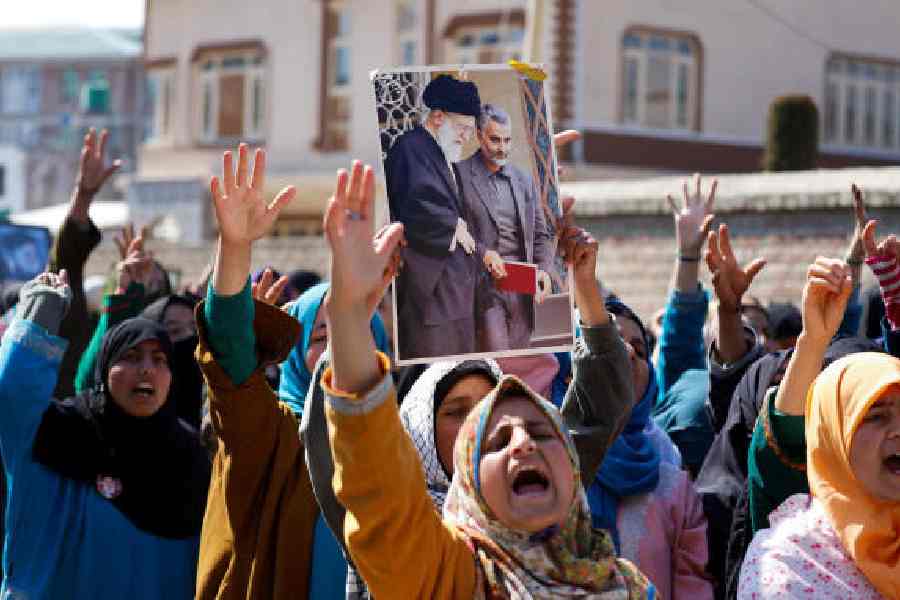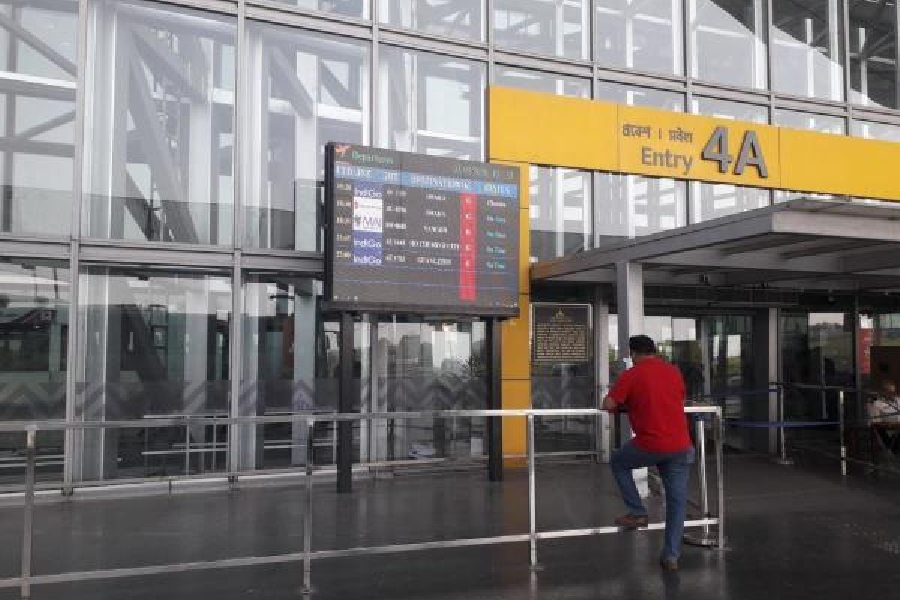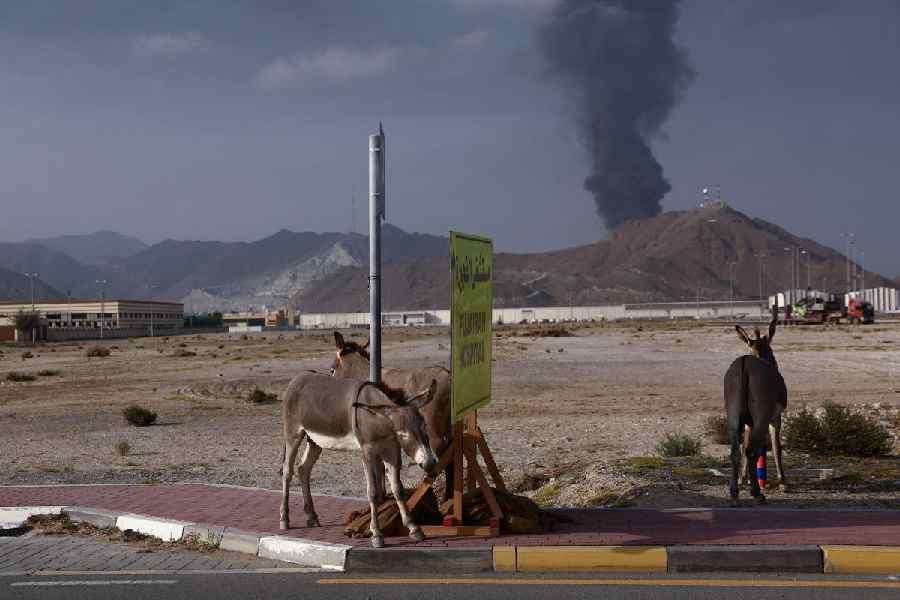 |
| Villagers of Ranibari at the burial ground in Purnea. Picture by Mohan Mahato |
Purnea, June 15: Poverty knows no religion. When the last rites become an issue of expense, the impoverished are forced to look for the cheapest means to bid goodbye to their near and dear ones.
Hindus of Ranibari village under Sri Nagar Block in Purnea find burial of bodies easier than cremation, as traditional Hindu rites are way too expensive for them.
“When there is no money to buy food how can we follow our religion,” said a villager.
Traditionally, Hindus cremate bodies after death, while Christians and Muslims follow the burial system.
It has been long since the Hindus of Ranibari have been burying the bodies of their loved ones near Renga Field, a private land belonging to the Muslims.
The land, which serves as the graveyard for the Hindus, was sold five years ago by its owners — Mohammed Tazo, Mohammed Tamiz and Mohammed Waz — to one Kailash Mahato.
At that time, the villagers were concerned because there was no other place the people could bury the bodies.
A villager Ramchandra Poddar (66), said more than 400 households have been using around 38 decimal of private land for burying the bodies of the deceased. The villagers are not even aware of a scheme called Kabir Antyashthi Yojana, which is supposed to help below poverty line (BPL) families carry out the final rites.
Ironically, almost all the families of the village are in the BPL category.
Banarsi Mahato said between five and six quintals of wood is needed to carry out the final rites of a Hindu person.
Approximately, the cost comes to between Rs 2,000 and Rs 2,500. On the contrary, there is no expenses in burial.
“It is not possible for us to bear the cost of so much wood. The bodies cannot be disposed of into a river, as there are none around the village,” Mahato said.
Around two months ago, Kailash, the landowner, started cultivation on a corner of the land being used as the graveyard.
The villagers apprehended he would take over the entire plot. But a few days after he started cultivating on the land, he died of a snake’s bite.
His son-in-law Kishore Kumar told The Telegraph that they have no intention of grabbing the land. “But the state government should make the land available to the people so that they can use it as a graveyard,” he said.
According to Patna-based sociologist Hetuka Jha, a Hindu’s body is burnt as part of the funeral rites, while the bodies of kids up to the age of one year is buried.
“Poor people who cannot afford wood dispose of the bodies into the rivers and in the absence of rivers, they are forced to bury the bodies in the graveyards. If an entire village has adopted such a system it is because of abject poverty,” Jha said.
District magistrate N. Saravana Kumar, told The Telegraph: “I have not been informed about such incident even in any of my janata darbars. I will enquire about it soon. Action will be taken in the matter after investigations are done.”
The newly elected mukhiya (head) of Khokha Dakshin panchayat, under which Ranbari village falls, told The Telegraph: “Hindu families prefer to bury the bodies rather than go for the traditional funeral because of poverty. Most of the villagers are not aware of the Kabir Antayashthi Yojana. I will help them once I am sworn in as the mukhiya on June 22.”
The Hindus of Ranibari village seem to be too used to the ways of their life to hope for a change. The burial system has become an integral part of their life.










